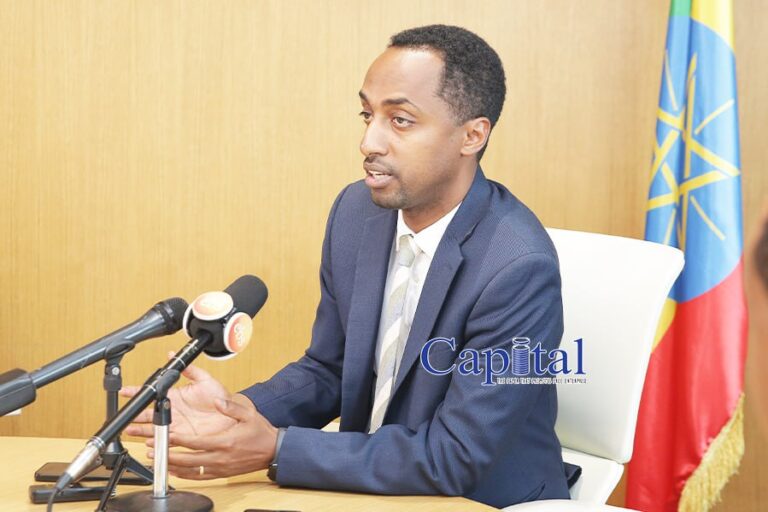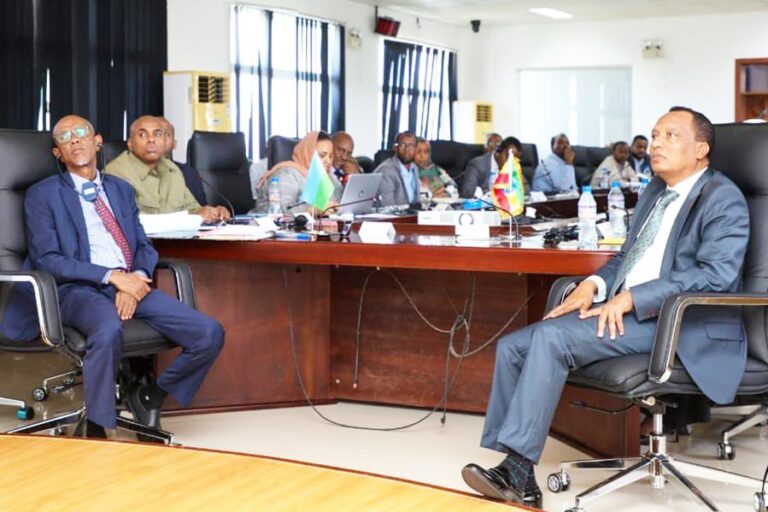A technical committee was established by Ethiopia and Djibouti to examine agreements pertaining to port use that were signed twenty years ago. During the most recent meeting between the chief logistics delegations of the two countries, the multimodal issue was high on the agenda.
The two sides reviewed a range of topics during the most recent Ethio-Djibouti Joint Ministerial Commission (JMC) meeting, which took place in Djibouti a week ago.
The results of the agreements made at the 16th Joint Ministerial Meeting, which took place in Addis Ababa in October of last year, were also assessed by the delegation headed by Alemu Sime, Minister of Logistics and Transport on the Ethiopian side.
The logistics sector, in which the two countries cooperate, is one of the primary subjects that will be discussed during the ministerial conference, according to sources who spoke with Capital a week ago.
Prior to the joint meeting, experts predicted that modernization and the entry of new companies into the logistics industry would be among the issues brought up.
The government is putting many measures into place as part of its aim to modernize the logistics sector over the next ten years, and one of those is permitting competition in some of the key business sectors within the sector.
Sector pundits stated that at the most recent meeting, the two sides formed a committee to review the long-standing agreements that the two countries had signed on various occasions.
The Djiboutian side was led by Hassan Humad Ibrahim, Minister of Infrastructure and Equipment. According to sources, there have been a number of dynamic developments in the logistics industry in the past several years that call for improvements.
They stated that the committee will assess the ‘Ethio-Djibouti Utilization of Port of Djibouti and Services to Cargo in Transit Agreement,’ which was signed in April 2002 between the two countries, in accordance with the JMC agreement.
Additionally, it assesses the customs protocols that have been signed on various occasions. The most significant agreement reached by the JMC at its most recent meeting was to update the multimodal agreement that the two countries had inked.
Sector experts noted that, prior to the government’s recent opening of the industry to competition, Ethiopian Shipping and Logistics (ESL) was thought to be the only operator in the field when the multimodal agreement was inked in 2006.
Based on it, ESL, the state-owned vessel operators, and three other multimodal operators were approved by the Ministry of Transport and Logistics (MoTL), marking a key milestone.
In compliance with the ruling, Tikur Abay Transport, Panafric Global, and Cosmos Multimodal Operation have decided to engage in the multimodal market as non-vessel operating common carriers (NVOCC).According to sources, the multimodal issue was a highly anticipated element on the agenda for the most recent JMC meeting because the Djiboutian side expressed concern over the recent developments in Ethiopia.
The Djibouti Ports and Free Zones Authority (DPFZA) revealed that NVOCCs are not permitted to operate as multimodal operators in Djibouti, which concerns newly selected companies looking to involve themselves in the business, even though the MoTL had approved the new operators to start the process of setting up their business.
The notice letter, signed by Aboubaker Omar Hadi, Chairman of DPFZA, was copied to Djibouti Customs, the Association of Forwarders of Djibouti, the Association of Shipping Agents, and Djibouti Port Community Systems.
It stated that a bill of lading (BL) issued by NVOCCs is not acknowledged within Djibouti Ports and Corridors because of their legal status.
Furthermore, the letter explained that NVOCCs are unable to ensure that supply chain expenses throughout the corridor will be fully paid, which presents problems with responsibility, traceability, and security.
It added that the only officially recognized documentation for goods transport activities in Djibouti’s ports, free zones, and corridors is the BL provided by multimodal transport operators, specifically shipping firms, in compliance with our legislation and standards.
“Therefore, it is imperative for all entities involved in maritime transport and logistics activities to adhere to these guidelines in order to avoid any operational disruption in Djibouti’s ports, free zones, and corridors,” the letter further disclosed.
According to the bilateral agreement negotiated between the two countries in 2006, ESL is operating in Djibouti as an NVOCC; nevertheless, the most recent decision made by the Djiboutian authorities has become an obstacle for the new firms.
Experts in the area said they expected the two countries to work out a diplomatic solution to end the issue smoothly.
“If the Djiboutian stance is not reversed, the new multimodal players would not be able to utilize their license,” an industry analyst told Capital.
At the JMC, topics such as the two countries’ political, economic, infrastructural, and logistical cooperation are frequently discussed.
Djibouti, which has well-developed port facilities and infrastructure networks connecting with Ethiopia, is the nearest facility for the central parts of Ethiopia.
According to sources, the midterm meeting set agenda items for the forthcoming bilateral conference, which is expected to be headed by the senior diplomats of the two nations and take place in Djibouti in July 2024.
Alemu headed the Ethiopian team, which also included Aynalem Nigusie, the Minister of Revenue, Debele Kabeta, Commissioner of the Customs Commission, Abdulber of Ethiopian Maritime Affairs (EMA), and Berisso Amallo, CEO of ESL.
Capital’s attempt to obtain further information from EMA was unsuccessful.





